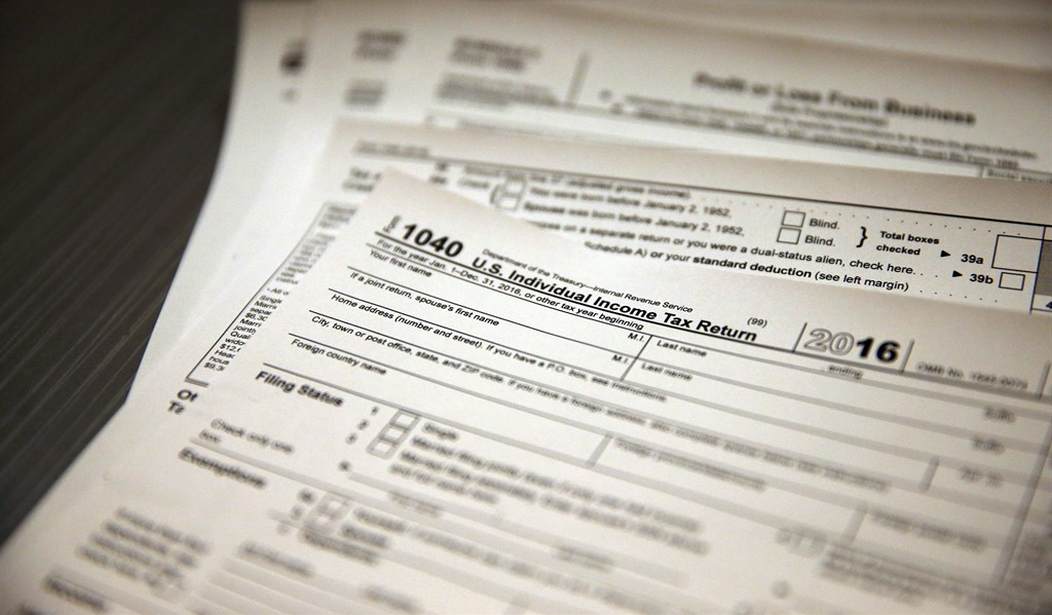Thanks to the Tax Cuts and Jobs Act (TCJA), the big tax reform package passed in late 2017, 90 percent of middle-class families received a tax cut, and now new data shows that the bill is having another positive impact: saving millions of hours in time spent complying with the code. Individual taxpayers and businesses spent more than 8 billion hours this year preparing and filing their taxes. The good news is that this was 71 million hours less than last year, in part as a result of changes made in TCJA. Despite this modest improvement, there’s a long way to go before our tax system is as simple as Americans deserve.
It is truly mind-boggling to consider the scale of 8 billion hours. This time frame is longer than 915 million years. Over this period, all the movies in both the D.C. and Marvel cinematic universes could be binge watched 2,069,917 times consecutively. In dollars, this is the equivalent of $273 billion worth of labor, based on the average wage and benefit rates for private sector workers.
When you add out-of-pocket costs for software, supplies and professional preparation, the total economic drain of the tax code can be put conservatively at $364.5 billion. By comparison, this exceeds the combined budgets of the Departments of Veterans Affairs and Agriculture.
The increase in the standard deduction means that 26 million fewer filers will need to itemize, saving 241 million hours and $2.9 billion in filing expenses. However, other TCJA provisions designed to significantly reduce tax burdens – as new credits and the pass-through income deduction – also entail more paperwork burdens on taxpayers to claim them. Still, on net individuals will spend 71 million fewer hours complying, saving $1.76 billion.
These numbers come courtesy of a new paper published by the National Taxpayers Union Foundation - part of our annual updated analysis of tax code complexity. The decrease in compliance burden for individual taxpayers is an anomaly - the tax code usually gets more complex and burdensome every year - and particularly during an economic expansion, when more taxpayers are making more money.
Recommended
Unfortunately, the same cannot be said of business income taxes. To make the U.S. economy more competitive, the TCJA reduced the federal business income tax rate from 35 percent to 21 percent, but it also increased complexity through international revenue provisions that act essentially as a complicated alternative minimum tax. The result is that business tax compliance will eat up an additional 117 million hours over last year, adding nearly $5 billion in expenses. This contributes to a total business tax compliance burden of $165.6 billion.
Though TCJA represented modest progress toward simplification of taxes for individuals, the overall cost of complying with the code remains staggering. In other words, the tax reform bill was the beginning of the journey, not the end.
The House recently passed the Taxpayer First Act which could help address administration of the tax system and strengthen taxpayer rights. Congress could also take up a technical corrections bill to prevent unnecessary and unintended complexities that result from drafting errors in the TCJA. A correction package is common after sweeping laws are enacted but is hung up this year due to partisan politics. Such petty differences should be set aside to ensure that the tax system is not imposing onerous, unnecessary burdens on taxpayers nor standing in the way of economic progress.
TCJA was a step forward for individual taxpayers, and despite the heavy burden imposed on them every year by the IRS, 2018 was just a little bit lighter. But this highlights just how much more progress there is to make: the tax code is still overly burdensome for American taxpayers and that complexity sucks time and money out of the economy. Businesses, in particular, feel the brunt of the tax code, and it’s as bad as ever for business owners. While TCJA was an impressive start, the tax code still needs updating to make tax season as easy as possible for the overburdened American taxpayer.
Demian Brady is the Director of Research for the National Taxpayers Union Foundation, a nonprofit dedicated to fairer and lower taxes for all Americans.

























Join the conversation as a VIP Member